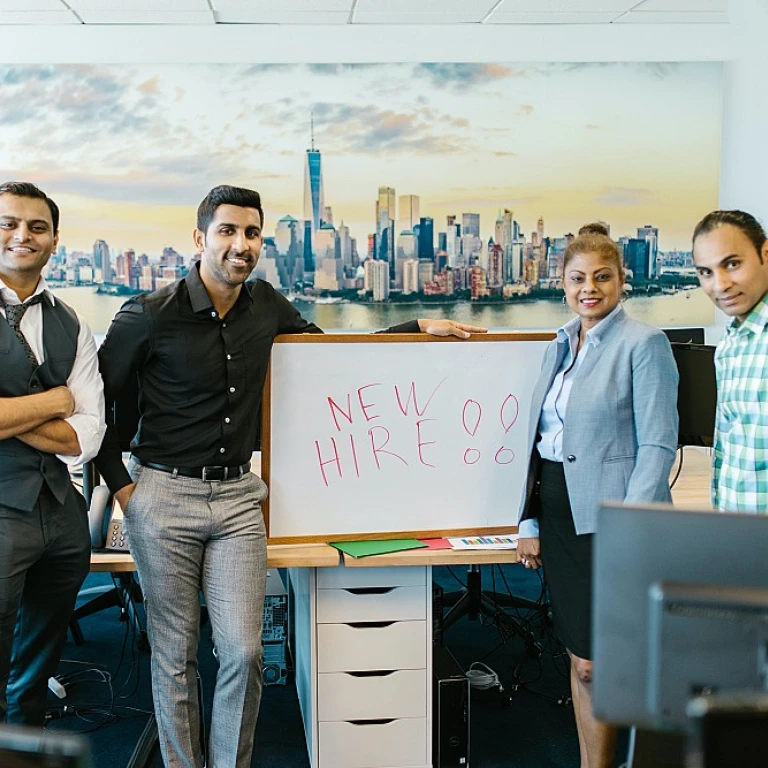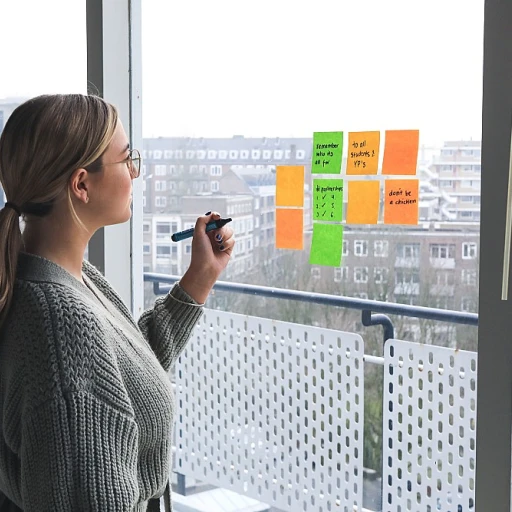
AI in HR: A New Way to Communicate
Revolutionizing Communication Strategies
Artificial intelligence is making waves in every industry, and human resources is no exception. AI is redefining the way HR departments communicate, fostering an environment where efficiency and engagement go hand in hand. Imagine harnessing advanced algorithms to tailor communication strategies that not only meet organizational goals but also resonate on a personal level with employees. AI can streamline traditional communication processes by analyzing vast amounts of data to decipher the most effective methods. Consider chatbots, for instance. They are paving the way for instant communication, answering employee queries anytime, anywhere. This ensures that HR teams are not limited by time zones, making global communication seamless. Moreover, AI's role as an information processor helps HR departments stay attuned to employee sentiments, manage feedback more effectively, and promote a culture of open dialogue. Whether it’s for routine updates, personalized messages, or comprehensive surveys, AI tools are enhancing the depth and breadth of communication within organizations. Adapting AI in communication strategies means HR can break free from the confines of one-size-fits-all messaging. Instead, messages can be tailored according to employees' roles, departments, or even past interactions, significantly improving the quality of engagement. As a result, HR professionals can devote more time to nurturing genuine human connections, striking a balance between technological efficiency and the indispensable human touch that AI tools in talent acquisition and management further exemplify. The scope of AI's impact is vast, and understanding its capabilities can significantly uplift an organization's communication landscape. As we delve deeper into AI's integration in HR, it's evident that while technology offers powerful tools, maintaining ethical standards and privacy remains crucial. Precisely navigating this blend is essential for achieving sustainable success in modern HR communications.Enhancing Employee Engagement with AI
Boosting Interaction through AI
Artificial intelligence is creating exciting possibilities for enhancing employee engagement within organizations. By using AI-driven communication tools, HR departments can foster a more connected workplace environment, facilitating seamless communication channels between employees and management. Enhancing employee engagement is not just about using new technologies; it also involves creating meaningful interactions. AI chatbots, for example, have proven to be effective in addressing routine queries, enabling human resources teams to focus more on complex issues that require personal attention. This dual approach ensures employees feel heard and valued, thereby enhancing their overall work experience.Building a Responsive Workplace
AI-powered communication platforms allow HR teams to quickly gauge employee sentiments and respond proactively. By analyzing data from employee interactions and feedback, organizations can fine-tune their communication strategies, tailoring their approaches to individual and collective needs. This data-driven method provides invaluable insights, assisting HR in making informed decisions that could significantly impact employee satisfaction and productivity. Moreover, AI tools can help identify communication gaps or misunderstandings within the team, offering suggestions for improvement. By integrating smarter communication frameworks, organizations can build a more open and responsive workplace, which is essential in today's rapidly evolving business world.Fostering Engagement with Automation
Through automated systems, communication becomes more efficient, leaving employees with more time to focus on their core responsibilities. Additionally, AI can personalize engagement strategies, delivering tailored content to employees based on their preferences and behavioral patterns. This kind of targeted communication can increase employee involvement and motivation. To explore more about how AI is enhancing employee engagement initiatives, check out this comprehensive blog post. Overall, AI's role in reshaping HR communication cannot be overstated. It offers a pathway to more engaged, informed, and satisfied employees, which is critical for any company aiming for long-term success.Data-Driven Decision Making in HR
Unleashing the Power of Data in Human Resources
Artificial intelligence is revolutionizing the way HR departments handle data, transforming it into actionable insights. The integration of AI tools allows HR professionals to make data-driven decisions, enhancing accuracy and efficiency in organizational processes. Firstly, AI facilitates the analysis of vast amounts of HR data, from employee performance metrics to engagement levels. By processing this data, AI algorithms can identify trends and patterns that may not be immediately apparent to human analysts. This improved visibility helps HR teams to make more informed decisions, such as adjusting management strategies or refining hiring processes. Moreover, data-driven decision-making supported by AI promotes fairness and objectivity in HR practices. By leveraging AI, organizations can minimize human biases that can influence decisions related to promotions, salary adjustments, or disciplinary actions. Thus, it contributes to creating a more equitable workplace environment. AI-powered systems are also adept at predicting future trends, such as workforce planning needs or skill gaps. For instance, by analyzing employee data, AI can forecast turnover rates and suggest strategies to improve retention. This predictive capability enables HR departments to proactively address potential challenges before they escalate. However, while AI enhances data handling in HR, it is essential to maintain a balance with the human touch, as discussed in another segment of this article. While data can tell an informative story, its interpretation and application still require the empathy and intuition that human HR professionals bring to the table. For organizations looking to dive deeper into AI’s potential, exploring how AI is shaping employee wellness programs can offer valuable insights. This exploration can help HR teams integrate AI in ways that prioritize both data efficiency and employee well-being. As AI continues to evolve, its role in data-driven HR decision-making will undoubtedly expand, offering more sophisticated tools and insights to enhance both organizational performance and employee satisfaction.AI Tools for Talent Acquisition and Management
Revolutionizing Talent Acquisition with AI
In the realm of human resources, AI is making significant strides in transforming how organizations approach talent acquisition and management. By leveraging advanced algorithms and data analytics, HR teams can now streamline their recruitment processes, ensuring they attract the best candidates for the job.
One of the most impactful ways AI is revolutionizing recruitment is through automated resume screening. This technology allows HR professionals to efficiently sift through thousands of applications, identifying top candidates based on predefined criteria. This not only saves time but also minimizes the risk of human bias, leading to a more diverse and qualified talent pool.
Enhancing Candidate Experience
AI-driven chatbots and virtual assistants are becoming indispensable tools in enhancing the candidate experience. These tools provide instant responses to queries, guide applicants through the recruitment process, and even conduct preliminary interviews. As a result, candidates receive timely feedback, and HR teams can focus on more strategic tasks.
Optimizing Talent Management
Beyond recruitment, AI is also playing a crucial role in talent management. Predictive analytics can help HR professionals identify employees who are at risk of leaving, allowing for proactive retention strategies. Additionally, AI can assist in personalizing career development plans by analyzing an employee's skills, performance, and career aspirations.
Incorporating AI into HR processes offers numerous benefits, but it is essential to balance technology with the human touch. As discussed in other parts of this article, maintaining a personal connection with employees and candidates is crucial for fostering a positive workplace culture.
Balancing AI and Human Touch in HR
Finding the Balance Between AI and Human Interaction
In the ever-evolving landscape of human resources, artificial intelligence presents an array of opportunities to streamline and enhance HR communication. However, it's crucial to strike a balance between leveraging AI's capabilities and maintaining the essential human touch that fosters genuine connections within the workplace. Artificial intelligence can perform tasks such as analyzing large sets of employee data, automating routine communications, and providing real-time feedback. These features undoubtedly streamline processes and enhance efficiency. Yet, there are aspects of HR communication where AI cannot replace the authenticity and empathy that human interaction provides. For instance, sensitive topics, personal development discussions, and conflict resolution are areas where AI's limitations are apparent. Human resources professionals possess emotional intelligence that allows for nuance and understanding when engaging with employees on a personal level – elements that AI is not yet proficient in. Striking this balance involves:- Selecting Appropriate Tasks for AI: HR teams should identify which tasks can be automated and which require a personal touch. Routine inquiries, scheduling, and data collection can be efficiently managed by AI.
- Maintaining Human Oversight: AI can inform decisions, but HR professionals should oversee critical decisions to ensure they align with company culture and employee well-being.
- Promoting Human-Led Communication: Employee engagement and motivation often improve with personalized human interaction. AI should support, not replace, these efforts.












